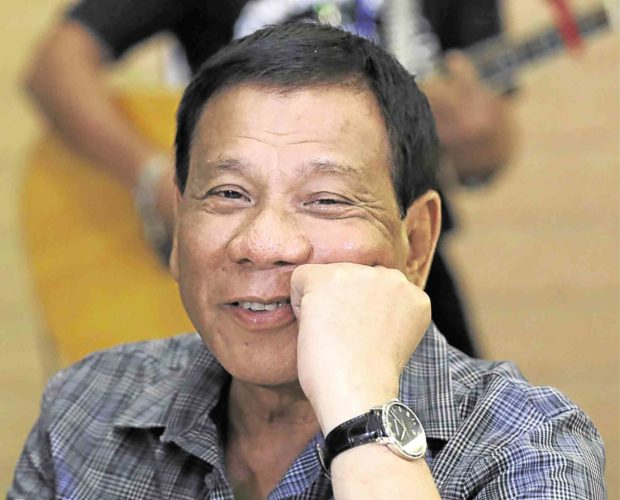
President Duterte
President Duterte would soon discuss whether to lift or extend martial law in Mindanao following the liberation of Marawi City from pro-Islamic State (IS) terrorists, presidential spokesperson Ernesto Abella said on Friday.
Addressing the 43rd Philippine Business Conference on Thursday, Mr. Duterte said he would not stop the enforcement of martial law in the southern Philippines “until the last terrorist is taken out.”
He had declared the liberation of Marawi two days earlier following the killing of the IS “emir” in Southeast Asia, Isnilon Hapilon of the Abu Sayyaf, and Omar Maute of the Maute group, whose fighters had held much of the Islamic city for nearly five months.
Would-be successor dead
Mr. Duterte also said Hapilon’s would-be successor, Malaysian Mahmud Ahmad, was killed on Wednesday.
Security officials said Mahmud helped finance the siege of Marawi and linked foreign fighters to the combined Abu Sayyaf-Maute forces.
Armed Forces of the Philippines spokesperson Maj. Gen. Restituto Padilla said freed hostages reported that Mahmud was among 13 terrorists killed in fighting on Wednesday.
Extension
The President declared 60 days of martial law on May 23 after the IS-inspired fighters laid siege to Marawi. Congress extended the period to the end of the year.
The deaths of three top terrorist leaders would “not automatically result in the lifting of martial law,” Abella said. Their network of followers and supporters still posed a threat, he added.
“The President is duty-bound not to compromise public safety,” Abella said.
Necessary action
He said Mr. Duterte would meet with the security, justice, and peace cluster of the Cabinet, including martial law administrator and implementor Defense Secretary Delfin Lorenzana and AFP chief of staff, Gen. Eduardo Año, to discuss “the necessary action to be taken.”
Padilla said the military would continue its work within the current martial law time frame.
“What we will do is to address the remaining networks and the other terrorist organizations,” Padilla said.
He said earlier that martial law helped law enforcers hold terror suspects for a longer period of time than what was normally allowed by law, allowing security forces and their lawyers to build up cases to file in court.